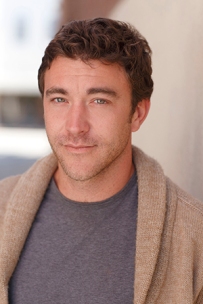Yesterday afternoon, Jeff Hobbs—one of the featured authors in Lenoir-Rhyne’s Visiting Writers Series— conducted a Q&A session with an audience primarily of students, mostly freshman who are reading his book The Short and Tragic Life of Robert Peace for their FYE (First-Year Experience) classes. As Hobbs began to speak, I was reminded of the phone conversation that he recounts in Chapter 12: “You sound like a mouse,” Rob says, “same as you did in college” (295). Though I thought his voice was too low-pitched to be mouse-like, I could see how Rob had found it mousy—and admittedly it was, as Hobbs describes in Chapter 12, “soft-spoken” and “halting” (295).
conducted a Q&A session with an audience primarily of students, mostly freshman who are reading his book The Short and Tragic Life of Robert Peace for their FYE (First-Year Experience) classes. As Hobbs began to speak, I was reminded of the phone conversation that he recounts in Chapter 12: “You sound like a mouse,” Rob says, “same as you did in college” (295). Though I thought his voice was too low-pitched to be mouse-like, I could see how Rob had found it mousy—and admittedly it was, as Hobbs describes in Chapter 12, “soft-spoken” and “halting” (295).
Yet despite the “soft-spoken” and “halting” quality of Hobbs’ voice, he delivered powerful responses to students’ questions. When someone asked, what made you want to write the book? Hobbs answered with remarks about the vast array of mourners—evidence of the variety of people whose lives had been touched by Rob—echoing Hobbs’ words in Chapter 17:
The line for the viewing was two blocks long and one of the most diverse collections of people I’d ever seen: Yale students and professors, people conversing in Portuguese, Croatian, and Spanish, young and old residents of all of the boroughs of New York City and all the townships surrounding Newark. (388)
Near the end of Hobbs’ Q&A, my thoughts returned to Chapter 12, when in response to a question regarding how the process of writing the book had affected him, Hobbs answered that it made him “lament the nature of male friendship,” which he illustrates in his reflections on his conversation with Rob:

The distance between us and the maleness of our friendship precluded revealing anything that truly mattered, and at the time I was too naïve to know that if you were friends with someone—truly friends—then you told him what was going on (“It’s called ‘catching up,’” my wife informed me when I asked how it was possible for her to yap with her girlfriends for as long as she did and share every innocuous detail of her life). Instead, I thought that by concisely presenting the most easygoing and put-together version of myself, I was being ‘all good.’ (295-96)
Hobbs did not address his writing process—something he may have spoken about at one of his other two appearances at L-R, Thursday evening and Friday morning—but he did convey what he hoped his biography of Rob would give to readers: a narrative that challenges the “predictable media spin of potential squandered” (386). The questions that audience members asked—as if they, too, had been acquainted with Rob—indicated that Hobbs did achieve that goal, one that any of us writing a book-length narrative would hope for: breathing life into our subjects, whether fictional or real, and enabling readers to see them as three-dimensional human beings, with all of their consistent inconsistencies.
Work Cited
Hobbs, Jeff. The Short and Tragic Life of Robert Peace. New York: Scribner, 2014. Print.